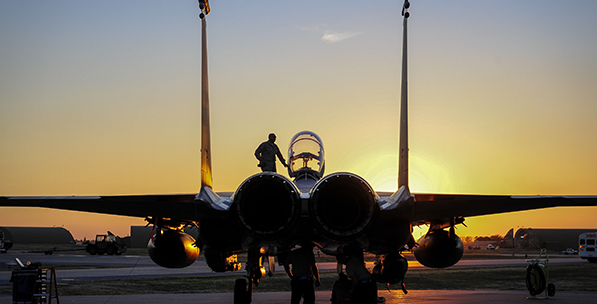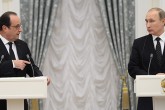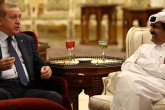The crisis in bilateral relations between Turkey and Russia, which started after a Russian bomber jet violated Turkish airspace and was subsequently shot down by Turkish air forces after multiple warnings were unacknowledged, reached a new peak over the weekend with the Russian administration’s declaration of plans to implement “economic measures” against Turkey. The measures which, if put into effect, would impact both the Turkish and Russian economies, will bring the crisis to a new level between the two countries.
It is interesting to see that despite the violation of Turkish air space by Russian jets, which has apparently happened previously and became an ongoing issue between the two countries, and confirmation of these incursions by other international organizations, including NATO, the Russian side sticks with its own narrative of events instead of resolving the issue of constant incursions, preferring instead to propagate its own narrative to its own public.
Despite the fact that, following the incident, authorities in Turkey have stated that they wished it hadn’t happened and that leaders of the two countries need to discuss the matter, the Russian side has intentionally escalated the crisis. After Russian authorities described the incident “as a stab in the back by the terrorists’ accomplices” and stated “Turkey’s actions are de facto protection of the Islamic State,” Russia’s extensive state-owned media network started to circulate similar allegations to the public. Most of these allegations aim to define Turkey as a supporter of terrorist groups like DAESH and de-legitimize Turkey’s position in regards to Syria as well. Prime Minister Medvedev’s statement that points to direct economic relations between DAESH and high level Turkish officials was only one of these claims. The economic measures that Russia plans to implement against Turkey also had similar tones. The executive order released on the Kremlin’s website yesterday was called “executive order on measures to ensure Russia’s national security and the protection of Russian citizens against criminal and other illegal acts and on the application of special economic measures against Turkey.” In addition to claims of Turkey’s connection to DAESH, the name implies that Turkey is a “national security” threat for Russia and its citizens. Some of the measures also aim to bring a similar effect about Turkey. For instance, one of these “measures” states, “the government has also issued instructions to take measures to introduce a ban on charter flights between Russia and Turkey; to enhance control over the activity of Turkish trucking companies on Russian territory to ensure security; to enhance control at ports and ensure the transportation safety of Russian seaports in the Azov-Black Sea area.” Rather than trying to “punish” Turkey for its action, it seems that the Russian government is aiming to portray Turkey as a threat to Russian citizens, national security and a potential source of insecurity with regard to the safety of transportation and trade.
This pattern of behavior by members of the Russian administration since the beginning of the crisis reminds us of the most recent Global Forecast Report of the CSIS. In a part related to Russian decision-making, Olga Oliker says: “Predicting Russian behavior is hard because Russia does not have a strategy. While it has strategic goals, it pursues them primarily by seeking opportunities, rather than developing clear plans.” The question is by intentionally escalating the crisis despite its own violation of Turkish airspace and despite Turkey’s attempt to contain the crises does Russia think that it now has an opportunity to put Turkey in a challenging situation in regards to Syria. If this crisis is about the Russian plane, the leaders of the two countries can talk and meet in Paris to discuss the issue between them and resolve the problem. However, the handling of the crisis by the media in Russia and statements by the Russian authorities raise questions as to whether the Russian government is trying to escalate and extend this crisis either to get domestic backing for its policies in Syria or to de-legitimize Turkey’s position in Syria. The actions of Russia in the coming days will reveal the answers to these questions.
[Daily Sabah, November 30, 2015]



